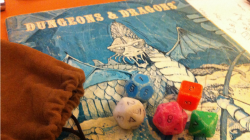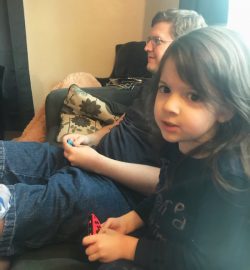Play Therapy & Video Games Are Good for Children’s Mental Health
July 9, 2020

In a previous post, we talked about The 4 Ps of Surviving – And Thriving In – A Pandemic Summer with Kids, which talked about activities for younger children. But what if your older kids want to play video games all summer? That’s okay, too. Much like our work to smash the stigma, that is, the fear, shame, and uncertainty, around mental health care, let’s smash some of the stigma about video games.
For this article, we sat down over Zoom® with Tyler Robertson, a Licensed Professional Counselor at Foundations who works with children, teens, and young adults. Tyler talked about how video therapy is going in general during the COVID-19 pandemic. In addition, Tyler, talked about his love of games, both in and out of therapy.
Video Therapy for Children
Tyler has been a counselor at Foundations since 2016, and a licensed counselor for 5 years. Therapy with children is an interactive time. The COVID-19 pandemic required all of Foundations’ therapists and counselors to pivot quickly to video therapy. Both the therapist and the client are in their own homes, in private areas, and log in to a secure, HIPAA-compliant video platform. Tyler has been doing video therapy with children as young as 8 years old. While it’s challenging to establish a rapport with children over a screen, Tyler is finding unique ways to connect with his younger clients during this distanced therapy model. Typically, Tyler interacts with a parent at the beginning of the counseling session, both to get an update and make sure technology is working.
Tyler has been working with a regular client on some intense trauma work. The child has met some key milestones in the treatment process, so Tyler and the client celebrated with a combined video counseling session and pizza party.
Part I: Play Therapy
Unlike traditional talk therapy that Tyler uses with older children and young adults, Tyler uses a lot of gameplay to interact with his younger clients. According to Psychology Today1, “… play offers a symbolic language. Figurines and toys representing life and the environments in which life takes place, as well as art materials, opportunities for theatrical improvisation, free association, and more offer a child means to communicate struggles, feelings, thoughts, relationships, interpretations of experiences, and the realities of their particular world.”
Tyler and our other therapists who work with children and teens use structured and unstructured play to engager children to communicate. The play becomes a way for the young client and therapist to build trust and empathy so the therapist can address trauma, social skills, and behaviors. How a child plays during therapy helps the therapist understand the child’s struggles when they can’t verbalize their emotions and feelings.
Developmentally, children don’t think concretely, and they cannot discuss abstract concepts. Adults learn through experience. However, children haven’t collected enough experiences. Unlike adults, children don’t know what therapy means and what they are getting from it. They learn through play. A child’s job is to play. Through play, children can learn to listen, work out conflict in an appropriate way.
According to Tyler, “I can learn more about a young client within an hour of play than I can through many hours of talk. And, from the child’s perspective, they will buy in to play more so than ‘talk’.” Children and teens reveal things about themselves in the way they play. It helps Tyler build trust and rapport with young clients and builds and reinforces positive experiences.
 Tyler is a fan of Dungeons & Dragons. When he works with clients who play D&D, too, he uses that shared connection as a jumping-off point for therapy. D&D is focused on creative and collaborative storytelling. He asks those clients about their created characters. The D&D character that a child created is either how the child sees themselves or how they wish they were. Characters have beliefs and values. Tyler does insight exercises with clients, asking how the D&D character best represents them and what’s the character’s goals. Asking a child what beliefs and values are important for their D&D character can get at some of the skill-building they need IRL (in real life).
Tyler is a fan of Dungeons & Dragons. When he works with clients who play D&D, too, he uses that shared connection as a jumping-off point for therapy. D&D is focused on creative and collaborative storytelling. He asks those clients about their created characters. The D&D character that a child created is either how the child sees themselves or how they wish they were. Characters have beliefs and values. Tyler does insight exercises with clients, asking how the D&D character best represents them and what’s the character’s goals. Asking a child what beliefs and values are important for their D&D character can get at some of the skill-building they need IRL (in real life).
For video therapy, Tyler uses the whiteboard function on Zoom to play Pictionary with his clients. In addition, Tyler and his  clients enjoy Mancala. Mancala is an ancient family of board games, believed to originate from Egypt, and it has roots in agriculture. There are many versions of Mancala, click HERE an example of how it’s incorporated into play therapy. For video therapy, click HERE to see the online version of Mancala Tyler uses. The game helps his clients build critical thinking skills and patience, among other core skills.
clients enjoy Mancala. Mancala is an ancient family of board games, believed to originate from Egypt, and it has roots in agriculture. There are many versions of Mancala, click HERE an example of how it’s incorporated into play therapy. For video therapy, click HERE to see the online version of Mancala Tyler uses. The game helps his clients build critical thinking skills and patience, among other core skills.
Source:
1 “Play Therapy: Far More Than Just Play” Psychology Today, March 29, 2019.
Part II: Encouraging Healthy Video Game Play
Tyler strongly believes that video games are good for your mental health. Because of their structure and interactive nature, video games have been used for treating trauma and depression, and to address isolation. Prescription video games exist for ADHD. There’s a positive social aspect to video games because kids talk about the games they play. By doing that, they learn how to communicate appropriately and find common bonds with their peers.
When parents look at their child playing video games, they see the back of their child, hunched over the console, clutching the handles or joystick, not paying attention to life. That’s much different than what a child experiences in the world they’ve entered via the game. Videos games praise and reward. They are colorful and full of sound. There is a lot of messaging in video games. Video games are art, and art has messages.
Outside of therapy, Tyler is a video game aficionado. He believes that parents can influence the messages children receive through video games. The more parents are in tune with video games, the more they know what messages exist in the games. With that knowledge, parents can reinforce the positive messages in the games, and talk about why a negative experience happened in the game. Parents should talk to their children about what they are seeing and doing in video games. Parents can spend quality time asking questions about the games and learn what their children are experiencing when they play. Tyler recommends that parents and children play video games together. It’s quality time together and a shared connection. Even if parents don’t play video games with their children, there is a shared connection if parents understand why video games matter to their children.
Tyler believes that all video games aren’t created equal and moderation is a good rule of thumb. Often, Tyler hears parents say that their child “plays video games too much”, “needs more structure than playing video games all day”, and “they’re too violent.”
Let’s take the last point first. Some video games are violent and aren’t appropriate for children. The Entertainment Software Ratings Board has an online guide to help parents choose video games appropriate for their children. The website Entertainment Software Ratings Board (ESRB) provides a rating category for age appropriateness for all video games. In addition, the ESRB has content descriptors show content that may have triggered a rating or may be of concern to parents. Parents, if you have a child who is a gamer, bookmark the ESRB website so you can keep up with the ratings of the video games they want and have.
 Regarding parents’ concerns that video games don’t have structure that kids need, remember that children’s jobs are to play. That’s how they learn. In fact, video games have structure. Each one has a set of rules, different scenes, and an objective way for a player to move from one level to the next. If a child plays different video games, they are learning to operate under different guidelines.
Regarding parents’ concerns that video games don’t have structure that kids need, remember that children’s jobs are to play. That’s how they learn. In fact, video games have structure. Each one has a set of rules, different scenes, and an objective way for a player to move from one level to the next. If a child plays different video games, they are learning to operate under different guidelines.
The first point about time spent playing video games is a very personal one. Some games are more complex than others, and different children need the structure that video games provide more than others. Parents should talk to their children about the video games they play, how long a level takes, and what is an appropriate daily video game schedule.
Here are some positive questions that parents can ask their children about video games:
- What’s your handle and how did you get it? What funny handle would you give me?
- Tell me why you chose that avatar?
- How did you do on your game today? Did you get to the next level?
- What did you have to do to win?
- Can you tell me why you like this game more than the others?
- Who’s your favorite person to play online with? Why?
There are thousands of video games on the market, that require different consoles and there is some level of financial investment. Here are Tyler’s video game recommendations:
Free or Low Cost
- Free online games include Mancala, Star Wars, Dungeons & Dragons, and Scrabble
- Tyler recommends that parents look for older systems (X-BOX) at second-hand shops
More Expensive

- Animal Crossing is very popular right now. It’s casual and open. It’s focused on goal-reaching. There’s no wrong way to play. Tyler’s 4-year old daughter “plays” it haphazardly, and Tyler is trying to grow award-winning blue roses.
Tyler’s Favorites
- Animal Crossing
- Dungeons & Dragons
Perhaps armed with this information and these questions, parents might even be willing to get a handle and an avatar and play video games with their child.
